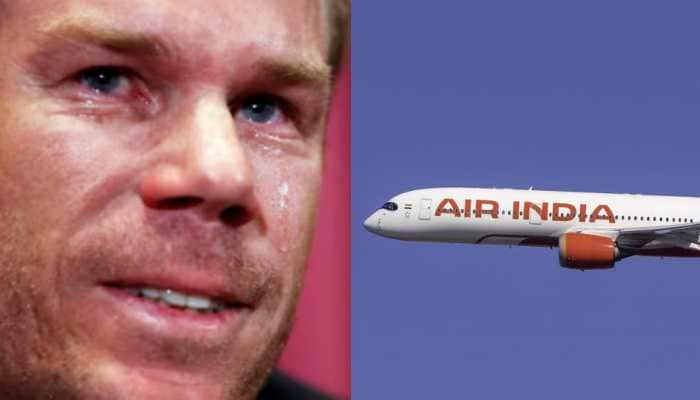In a horrifying incident that has rocked the global aviation and sporting communities, Air India’s flight AI 171 — a Boeing 787-8 Dreamliner — crashed just moments after taking off from Ahmedabad’s Sardar Vallabhbhai Patel International Airport. Bound for London, the aircraft reportedly lost communication with air traffic control shortly after the pilot issued a distress “May Day” call. Tragically, all 242 people on board, including 12 crew members, were killed in the crash, which occurred on the afternoon of June 13, 2025.
The aircraft, under the command of experienced pilots Captain Sumeet Sabharwal and First Officer Clive Kundar, had amassed over 9,300 flight hours between them. Despite their expertise, the crash has raised serious questions about the airline’s operational safety protocols, aircraft maintenance, and overall crisis response.
Reacting strongly to the tragedy, veteran Australian cricketer David Warner took to Instagram to vent his frustration and concern. Sharing a damning YouTube comment that questioned Air India’s safety protocols, Warner wrote: “If this is true, it’s absolutely shocking. Thoughts go out to all the families. I would never fly Air India ever again after this and my last interaction with them.”
Warner’s statement quickly went viral across social media platforms, especially given his large Indian fan base and longstanding connection to the country through the IPL and brand endorsements. His public condemnation not only added global visibility to the crash but also ignited a broader conversation about Air India’s safety track record and customer experience.
Interestingly, this is not Warner’s first negative experience with the Indian carrier. During a previous visit to India for a promotional campaign, the Australian star reportedly faced significant travel inconveniences while flying Air India — delays, lack of communication, and in-flight issues. This, coupled with the ongoing revelations post-crash, seems to have cemented his decision to avoid the airline permanently.
Adding fuel to the fire, an ex-Air India employee, identified as Vivek, has come forward with disturbing claims. According to him, pilots, engineers, and crew members had long voiced concerns over recurring issues with Boeing aircraft and internal mismanagement. Despite escalating these warnings to top leadership, no corrective measures were implemented.
Following the crash, Air India issued a statement confirming the nationalities of the victims — 169 Indians, 53 British nationals, seven Portuguese, and one Canadian were among the dead. But even with the airline’s official communication, mounting criticism and questions about its safety standards have created a reputational crisis. Warner’s high-profile commentary has amplified scrutiny. Aviation analysts suggest that public backlash from international figures like Warner may significantly impact Air India’s global perception, passenger trust, and future ticket bookings — especially from international markets.
Warner’s cricketing credentials are beyond question. Since his debut in 2009, the left-handed opener has been a cornerstone of Australia’s batting lineup across formats — scoring 8,786 Test runs, 6,932 ODI runs, and 3,277 T20I runs. His words carry weight, not just in sporting circles but also among corporate sponsors, aviation stakeholders, and millions of followers worldwide. When Warner speaks, the world listens — and in this case, his words could have far-reaching implications for Air India’s brand image and accountability.







